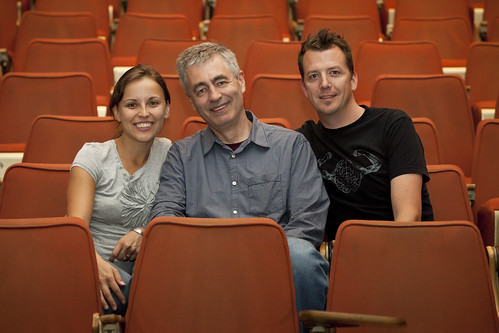
The other night I went to see The Interrupters at another full-house Cinema Politica screening at Concordia University in Montreal, with the filmmaker in attendance. Cinema Politica regularly gets hundreds of people out to see socially and politically relevant documentaries – in this case 650 people on a Monday night! Kudos to organizers Ezra Winton and Svetla Turnin.
The Interrupters is a terrific film by veteran filmmaker Steve James. Initiated thanks to an article by Alex Kotlowitz, it tells the story of three ‘violence interrupters’ who intervene in violence-ridden, mainly black neighbourhoods in Chicago – the ones which became a national symbol of urban violence in the U.S. a couple of years ago.
It’s a classical ‘vérité’ film, tracking the main characters in many tense and emotionally raw encounters with both victims and perpetrators. The director is also the DOP, and the film is beautifully shot – and has excellent sound recorded in often difficult situations. James’ views on documentary making and the relationship between filmmaker and subject are very close to my own. For example, he spoke about the impact of the camera on the subjects as being sometimes negative, sometimes positive.
Steve James directed Hoop Dreams, a truly impressive and inspiring film. There was a controversy about Hoop Dreams not being nominated for an Oscar, something it definitely deserved. Hopefully that mistake will be made up for by an Oscar nomination for Interrupters.
At IDFA in Amsterdam Steve was given a carte blanche to show his top list of documentaries, see here.
The Interrupters was produced by a truly excellent company called Kartemquin Films. Last year I met Gordon Quinn, one of the founders. I remember asking him whether he felt that the new digital environment had any negative implications for filmmaking ethics.
Quinn said: ‘It’s true that the context is changing, but I think the underlying sets of responsibilities are still there. You owe ethical consideration to your subject and to the intended viewer, and these things can be in contradiction. We spend months or years with our subjects, and so our concerns for them have to be greater than if we were just parachuted in for an hour, or worse just grabbed something from the net. I do worry that pieces of our films could be used out of context and portray our subjects in a dishonest light.”
Thanks to Tobi Elliott for her help with the blog.
